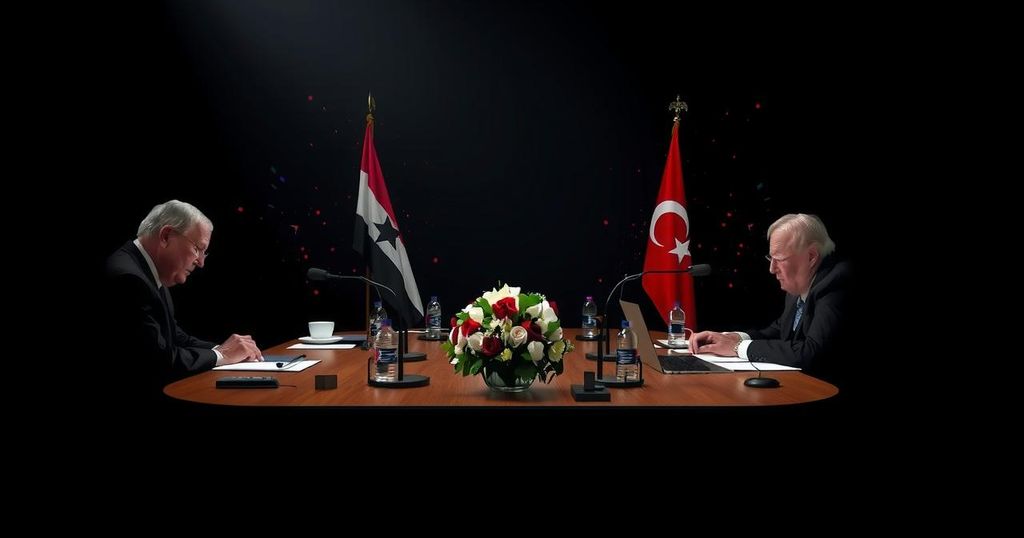U.S. officials are working to revive peace talks in the Middle East as violence continues between Israel and its adversaries. Israel has significantly affected southern Lebanon, damaging nearly 25% of buildings due to its military actions. A recent analysis indicates that the destruction is escalating, with tens of thousands displaced and in dire need of humanitarian assistance. Amidst this turmoil, affected civilians share their traumatic experiences, illustrating the urgent need for diplomatic intervention.
U.S. officials are actively striving to rejuvenate stalled peace negotiations in the Middle East amidst a persistent cycle of violence between Israel and its adversaries. As part of its ongoing military operations, Israel has caused extensive destruction in southern Lebanon, affecting nearly 25% of buildings in 25 municipalities near the border. Satellite imagery analyzed by The Washington Post reveals that at least 5,868 buildings have been subjected to damage or destruction since the onset of Israeli ground incursions and air strikes on October 2, which marks a significant escalation in hostilities. The most affected areas, Ayta al-Shab and Kfar Kila, have experienced devastation with nearly half of their structures rendered uninhabitable. The rate of destruction continues to escalate, doubling approximately every fortnight. Despite this, Israeli officials express a willingness to engage in talks aimed at de-escalation. Further analysis, conducted using Sentinel-1 satellite radar data by Corey Scher of CUNY Graduate Center and Jamon Van Den Hoek of Oregon State University, has allowed for precise mapping of the extensive damage inflicted by military actions, including significant impacts on religious sites due to controlled demolitions. This compounding crisis invokes deep concern as tens of thousands of displaced residents seek refuge in neighboring towns, witnessing firsthand the escalating violence. In Deir al-Ahmar, a town harboring many displaced individuals from Baalbek, the trauma of recent strikes leaves families in shock. Many residents, such as Zahra Younes, recount harrowing experiences of the bombings. Their lives have become a poignant illustration of the humanitarian toll exacted by the ongoing conflict, underscoring the urgent need for diplomatic intervention to restore peace in the region.
The ongoing conflict between Israel and Hezbollah has escalated significantly in recent months, marked by Israel’s military operations in Lebanon and persistent skirmishes across the border. The conflict has left a profound humanitarian crisis in its wake, with vast areas in southern Lebanon suffering extensive structural damage. The U.S. government is currently attempting to mediate and push for renewed peace talks, amid growing international concern regarding the hostilities and the rising number of displaced individuals. The situation remains tense as military actions continue to have devastating effects on both infrastructure and civilian life in the region.
In conclusion, the current hostilities between Israel and Hezbollah have escalated to alarming levels, resulting in widespread destruction across southern Lebanon and a humanitarian crisis marked by mass displacement. This situation emphasizes the necessity for renewed diplomatic efforts to mediate peace talks, as U.S. officials work to navigate an increasingly complex geopolitical landscape. The stories of displaced individuals serve as a powerful reminder of the human cost of conflict, highlighting the urgency for a resolution that addresses the underlying tensions and promotes stability in the region.
Original Source: www.washingtonpost.com






